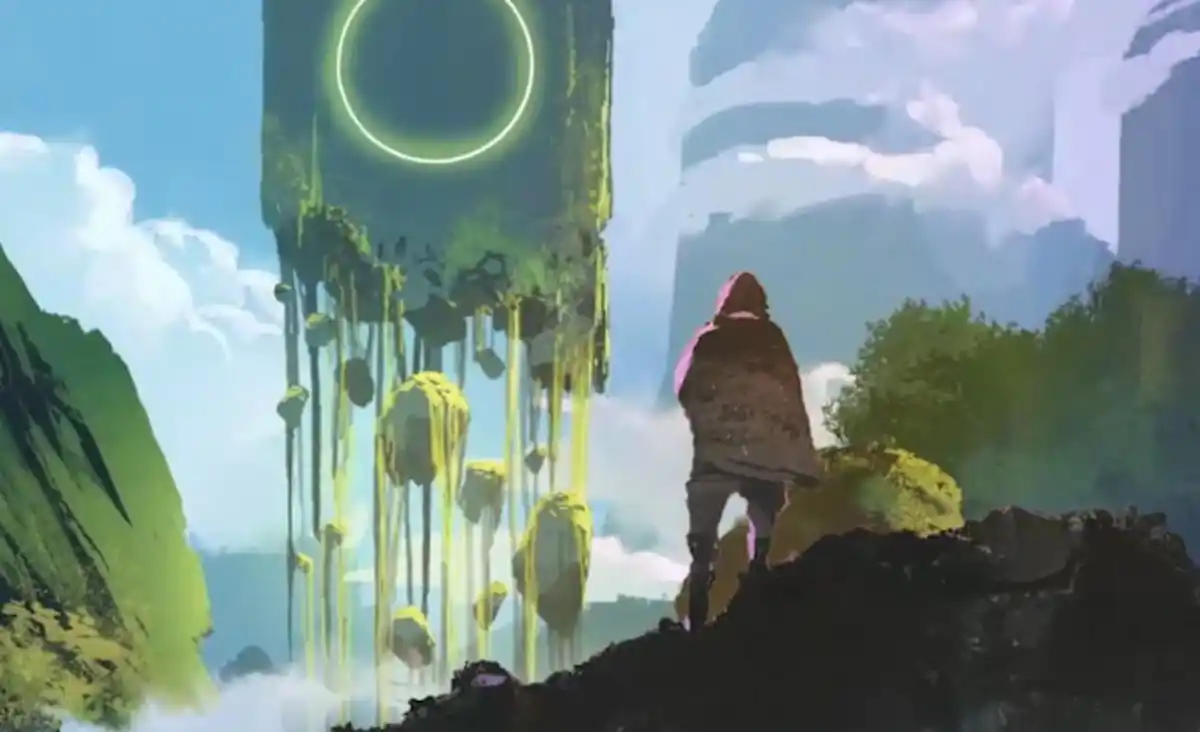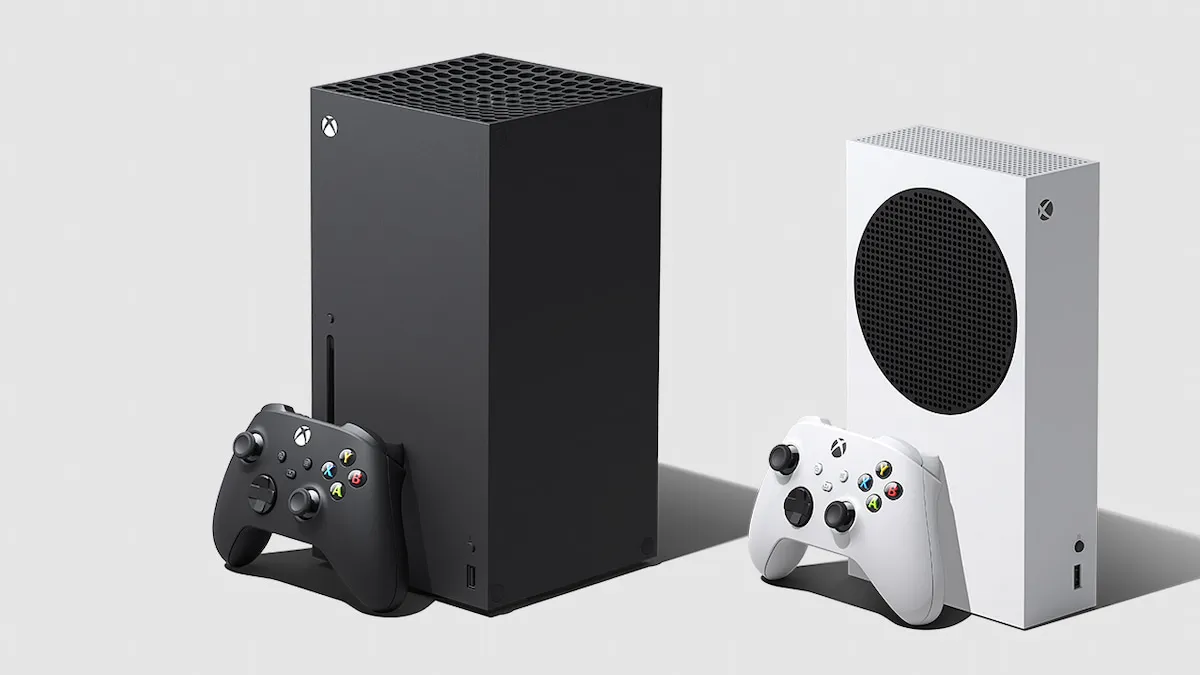This article is an opinion piece and does not necessarily reflect the views of the Daily Dot.
Has it really been another year in esports? While the expanding waistline and thinning hair say “yes,” the brain recoils in horror and screeches “no.” Though we may have purposefully forgot large swathes of it, the calendar doesn’t lie.
It has indeed been another esports year. And this January’s landscape is largely unrecognizable from the one that preceded it.
The end of an esports year is a strange time. The successful, who spend so much of their time separated from the hopefuls and the failures, come down from their lofty towers, built from years of accrued mousepads and headsets. They preach about all we have achieved, collectively—that this was the year we truly made it, that esports is the real deal now. A warm glow fills the hearts of those who hear the message and they look at their fellow nerd with a newfound empathy, a connection that allows the hardcore to embrace even the filthiest of casual. The sounds of joy are rendered inaudible by the even louder sound of the palms of hands being reached over their owners shoulders and slapped repeatedly against yielding backs.
Perhaps they are right this time. Perhaps the year that has passed was the final one we spend in the wilderness, and 2015 will be when we are treated to milk and honey.
If that is true, then this may be the last one of these I ever have to write. Amid all the self-congratulation and praise dispensed to the esports elite, my alternate awards (previously published at Cadred.org and Esports Heaven, and now here on the Daily Dot) stand as a testament to the bungled and botched who made the esports year truly memorable for all the wrong reasons.
Here is the first batch of Gonzo Awards for 2014. Expect a second to arrive soon.
Worst Lan Performance of the Year
2010: FM Toxic at SLAP #21
2011: mTw at ESWC
2012: Michael “mK” Zaidi at Copenhagen Games
2013: Curse / IBUYPOWER at DreamHack
CLG, post Korean boot-camp, NA LCS Summer Play-offs Quarter Final
When Counter Logic Gaming announced that they would skip the last week of LCS matches and head to Korea for a prolonged bootcamp, CLG fans saw it as a statement of intent. Neutral fans, on the other hand, saw it as a colossal act of arrogance, an assertion that they would already be going to worlds, and as such needed practice against the best teams out there.
If this high intensity training were represented in a movie, it’d be like the training montage from Rocky IV, “Hearts on Fire” blaring in the background while MonteCristo bellows at Doublelift to hit one more push-up. What actually transpired was closer to the “bring out the gimp” scene from Pulp Fiction, two weeks of non-consensual brutalization at the hands of infinitely superior players, all of which now probably seems like a vague fog amid the jet-lag and late nights.
With Riot unable to find a rule worded vaguely enough to issue a penalty, CLG returned from boot camp to face a Curse team—who weren’t without their own problems. With David “Cop” Robertson taking a break from his second job as the visual representation for the word “average” in the dictionary, as well as a faded, and jaded, star in the form of Joedat “Voyboy” Esfahani, this was meant to be a game that CLG could win comfortably. Instead, they didn’t show up. And an uninspired performance on the first map was as good as it got, spiraling into a nightmare of shame and ridicule.
People had really underestimated just how dysfunctional the CLG squad actually was. Reports of divides in the team, the “four guys and a Korean,” got wrecked across the board.
The series cemented Austin “LiNk” Shin’s reputation as one of the most disappointing players at the high end of professional League. Cop pulled out a performance to silence the doubters (with more than a little help from his support Alex “Xpecial” Chu).
Shin “Seraph” Wooyeong’s performance was so bad that it’s safe to say he secured his destiny as a pub-quiz question along the lines of “who is the only top laner to make Diego ‘Quas’ Ruiz look a world beater?” The fact he did it in part with the champion that he was expressly forbidden from using by his team mates—Nidalee—makes it all the harder to take.
After being beaten 3-0, the humiliation didn’t end. Dirty laundry was aired in public, old rivalries flared up as Andy “Reginald” Dinh went all ghetto and started throwing out virtual gang signs on Twitter, and CLG scrambled to placate fans who realized that maybe the management behind the team were more lacking in clues than the investigators of the Black Dahlia murders.
It was an expensive failure that saw careers stalled and a near permanent gloom surround the organization. As TSM coach Choi “Locodoco” Yoon-sub succinctly remarked at the time: “Not all hail marys end as a touchdown.”
Worst Decision of the Year
2010: ESL UK
2011: CS:GO Beta Key Distribution
2012: Absolute Legends Ghosting
2013: Alexey ‘Solo’ Berezin of Team Rox.Kis Match Fixing
“I’ll just boost you up there” – Fnatic
Fnatic went into DreamHack Winter as the most hated Counter-Strike: Global Offensive team in the professional scene. They also happened to be the best. This was part of the problem—the legitimacy of some, if not most, of their players had been called into question amid revelations that several private cheats were being used by pros.
Would-be detectives scoured footage of every pro they could think of who had exceptional performances in recent memory, and one player continually threw up moments that defied explanation—Robin “flusha” Rönnquist.
His crosshair had this weird habit of “locking” on to people through smoke, walls and other objects. This was later explained as “the lifting of the mouse” by the player, but others remain far from convinced. With the Counter-Strike competitive tour remaining depressingly amateur in an era of growth and professionalism, there will never be any definitive answers about whether or not the player(s) cheated.
For many, the footage speaks for itself. For others, it isn’t a smoking gun and could instead be a series of unfortunate coincidences. Several professional players made their views clear, none more so than when Hellraisers declined shaking hands with him at this very event.
Regardless of your stance, we can all agree on one thing: Fnatic were under more scrutiny than any other team coming into that major. In a tournament that could have been the road to redemption, why would they do something that was always going to be viewed as unsportsmanlike sportsmanship at best? Well, that’s exactly what Fnatic did in their semi-final against LDLC, using an obscure boost to give an advantage that left their opponents with no chance of winning.
It was far from being a spur of the moment decision, either.
The team actively hid the boost from other people after an amateur player had posted it on YouTube. The uploader was approached through a friend of one of the Fnatic players, and took it down after they asked him to protect their “tactics.” The players never denied this claim.
After coming back from 13-3 down and winning the match, the players high-fived as if they had truly achieved something, rather than just exploited a flaw in the game that put their opponents at an insurmountable disadvantage.
Their coach, Jonatan “Devilwalk” Lundberg, joked about it in the post-match interview saying “the map is called Olofpass for a reason,” referring to the player who had used the boost to such devastating effect.
When LDLC challenged what was clearly, for want of a better word, bullshit, Fnatic could have simply agreed to a replay, acknowledging their gamble hadn’t paid off. Instead, they filed a counter complaint, citing two rounds in which the French team had used boosts themselves. These boosts had nowhere near the same consequences, of course, but were still forbidden under the current, inadequate ruleset. As such, the admins agreed to replay the whole game and at that point LDLC were so disgusted at the decision they spent the night talking about what to do. They wanted to forfeit in protest.
In the meantime the boost had caused such waves in the Counter-Strike community, especially in the aftermath of the cheating allegations, that there was talk of little else. Fans organized a campaign to contact Fnatic sponsors, saying they would no longer support their products if they continued to support an organization that had done so much to run the game’s name through the mud. The players also received an angry backlash from fans and detractors alike who couldn’t understand why they did it.
So Fnatic rushed to the venue to forfeit first, saying in a prepared statement: “With tremendous respect towards the CS:GO community and other teams we have decided to withdraw from the tournament.”
After the event they would portray themselves as victims, talking about how the players were reduced to tears amid the hostility. Any sympathy from the fans was stamped to death shortly thereafter, when Rönnquist declared that “this community is a fucking joke.”
Perhaps the biggest joke of all is his team’s inability to see that they were victims of their own stupidity—and little else.
Most Irritating Fanboys
2010: The French
2011: The French
2012: 1.6 Enthusiasts
2013: Dota 2
Team SoloMid
It was a special year for TSM fans. Their team ended 2014 on a series of highs that defied expectations. They won the Summer Split with a run at PAX Prime, where they defeated Team Dignitas, LMQ and Cloud9, before going on to defy their critics by progressing from their group at the World Championships. Their fans easily could have stayed silently smug.
Instead, they took it as a carte blanche to behave as a collective more irritating than the average outbreak of pubic lice.
On a good day, their pack mentality is insufferable. Seemingly convinced they are somehow discriminated against by everyone else, despite being a majority group and aligned with one of the most successful brands in their game, they gripe about their victim status as if regular League of Legends fans were hiding them under the floorboards lest the E-stapo get them. That’s ironic, considering no forum discussion about their team avoids being derailed by a synchronized downvote, a blur of black and silver flair “correcting” history with the expert precision of Josef Stalin.
You can’t have missed them. Whether they are at events endlessly chanting the three letters of power that prove you understand League of Legends better than anyone else, attempting to influence games by shouting when ganks are incoming (oblivious to the delay that prevents this), or simply burning effigies of Duncan “Thorin” Shields, the TSM fan has continued to rise to annoying prominence in 2014.
Indeed, they were instrumental in some of the year’s most embarrassing and unpleasant episodes . They played a significant part in the removal of Shields from esports publication OnGamers, because he had the temerity to use the word retarded in a tweet about their beloved Jason “WildTurtle” Tran. Then they took their robust views about free speech further with co-ordinated attacks on the best League of Legends talk show to date, Summoning Insight.
Equally, they attempted to justify some fairly reprehensible behavior. Team SoloMid refused to work with media outlets who employ anyone critical of the team, and fans largely deemed this “professional behavior”—as opposed to the actions of spoiled children. Spurred on by their glorious leader Andy “Reginald” Dinh, during worlds they took to social media to attack anyone who offered opinions that the team wouldn’t get out of groups, or that their players weren’t on the same level as some of their counterparts.
When their messiah accused Christopher “MonteCristo” Mykles of being a fraud publicly, a fairly open and shut act of defamation, this was seen as fair game, an action to be admired. “Regi tells it like it is and doesn’t afraid of anything,” they said. Anyone suggesting otherwise was met with a hostile response on social media, including the classic death threats issued by someone whose parents won’t let them use public transport without a chaperone.
All of this is acceptable of course. Never forget that criticism of any kind is hugely unprofessional and drags the whole industry down. When it’s about TSM that is.
Worst “Manager” of the Year
2010: John “jHG” Blackwood
2011: Marc “virp” Corban
2012: Dmitry Smilyanets
2013: Simon Boudreault
Noh Dae Chu
Most of the people who win this award are comical figures. Serially inept at everything they do, they handle their esports business like Kanye West handles the media. More often than not they slink away with their tail between their legs only to contact me a year later with a “lawyer’s letter” written in crayon threatening my immediate imprisonment if I don’t remove their entry from the annals of esports history.
This year though, despite many suitable candidates, there is one special piece of shit that stands at the foot of the heap, so far removed from the label “manager” he should be jailed under the trade descriptions act. What else can be said about a man so oblivious to his duty of care that he threatened them with physical violence to keep them in line, got them involved in match fixing and in the end drove one of them to attempt suicide.
The manager of AHQ Korea had lied from the start, promising that a sponsor had already ponied up the cash for players salaries, living expenses, a roof over their heads, and equipment. Instead, he had taken out a loan to cover the costs, and he had some novel ideas about how to make the money back. Namely forcing his players to lose games he had placed bets on. If the players attempted to win, he threatened them some more. As Cheon “Promise” Min-Ki explained in an open letter once the scandal came to light:
“When we first made the team, we were told that AHQ sponsored us with cash and computers. We didn’t know they only gave us gaming gear for rights to the team name. Our manager Noh had lied to us, and took out a loan to pay for our housing, living expenses, computers, and even our salaries. He was planning on placing illegal bets on eSports games and fixing them to win back the borrowed money and make a profit.”
When his scheme came to light, he mostly avoided any consequences. Worried about the shame and the stigma, Cheon elected to throw himself off a twelve story building to what he hoped would be his death. Crashing through a roof and into a dumpster he managed to survive with serious injuries. By the time he awoke from his coma Noh Dae Chu, like most great villains, was nowhere to be seen.
So far the West seems to have mostly forgotten about this shocking peek behind the curtain of the supposed esports utopia known as South Korea. While Cheon has apologized and been met with an outpouring of support, the person who ruined the lives and reputations of five players to feed his own need for money and status has barely been mentioned since the incident. The Korean authorities were supposedly hunting him down, but to date there have been no reports of his arrest or any other updates.
While liars and thieves are a scourge, people who prey on the weak and vulnerable are a special kind of scum. Noh Dae Chu managed to be all those things. Quite possibly the worst esports manager of all time and a new benchmark for all future swine to be measured by.





